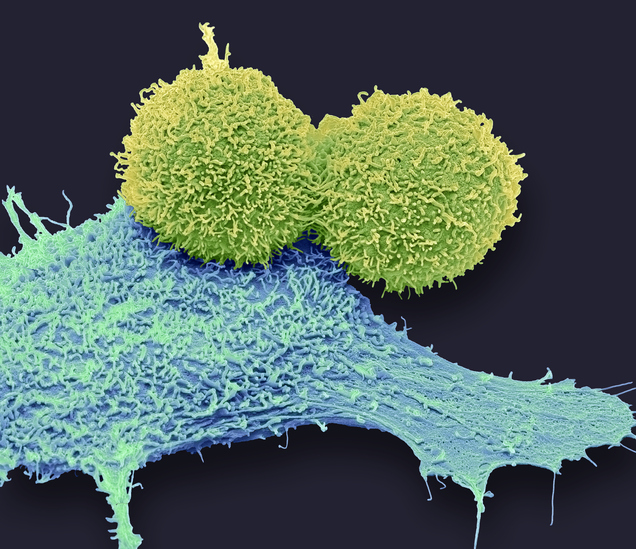
Scientists at the LSU Health New Orleans School of Medicine have found a new role for a protein in preventing the growth and spread of breast cancer. The results of the study (“Exosomes from Nischarin-Expressing Cells Reduce Breast Cancer Cell Motility and Tumor Growth”), which researchers believe could have a significant impact on cancer therapy, were published in the OnlineFirst section of Cancer Research.
“Exosomes are small extracellular microvesicles that are secreted by cells when intracellular multivesicular bodies (MVB) fuse with the plasma membrane. We have previously demonstrated that Nischarin inhibits focal adhesion formation, cell migration, and invasion, leading to reduced activation focal adhesion kinase. In this study, we propose that the tumor suppressor Nischarin regulates the release of exosomes. When co-cultured on exosomes from Nischarin-positive cells, breast cancer cells exhibited reduced survival, migration, adhesion, and spreading,” wrote the investigators.
“The same co-cultures formed xenograft tumors of significantly reduced volume following injection into mice. Exosomes secreted by Nischarin-expressing tumors inhibited tumor growth. Expression of only one allele of Nischarin increased secretion of exosomes, and Rab14 activity modulated exosome secretions and cell growth. Taken together, the present study reveals a novel role for Nischarin in preventing cancer cell motility, which contributes to our understanding of exosome biology.”
Suresh Alahari, PhD, the Fred Brazda professor of biochemistry and molecular biology, discovered the novel protein, Nischarin, which is involved in a number of biological processes including the regulation of breast cancer cell migration and movement. Although his lab has shown that Nischarin functions as a tumor suppressor, research continues to uncover new information that may lead to better treatments.
In the current study, the research team investigated Nischarin’s function in exosome release. Tumor-derived exosomes contain various signaling messengers for intercellular communication involved in tumor progression and metastasis of cancer. Tumor exosomes influence the interactions of various types of cells within the tumor microenvironment, regulating tumor development, progression, and metastasis. Primary tumors release exosomes that can enhance seeding and growth metastatic cancer cells.
Among the researchers’ findings: Nischarin regulates cell attachment and alters the properties of exosomes. Exosomes from Nischarin-positive cells reduce breast cancer cell motility and adhesion, as well as tumor volume. Nischarin-positive cells release fewer exosomes, and cell survival is decreased. Co-culturing breast cancer cells with Nischarin-positive exosomes decreases tumor growth and lung metastasis.
“This novel role for the tumor suppressor Nischarin not only increases our understanding of the exosome biology, but can be translated to identifying new targets for modulating cancer metastasis,” noted Alahari. “Inhibition of the secretion of exosomes may serve as an effective treatment for cancer.”
According to the National Cancer Institute’s Surveillance, Epidemiology, and End Results Program, breast cancer represented 15.3% of all new cancer cases and 6.7% of all cancer deaths in 2018. There were an estimated 266,120 new cases of breast cancer in the U.S. and an estimated 40,920 deaths.
“It has been shown that exosomes can be developed as carriers for delivering drugs,” Alahari added. “Nischarin-expressing exosomes in combination with drugs will likely have a very good therapeutic effect on breast cancer patients.”













